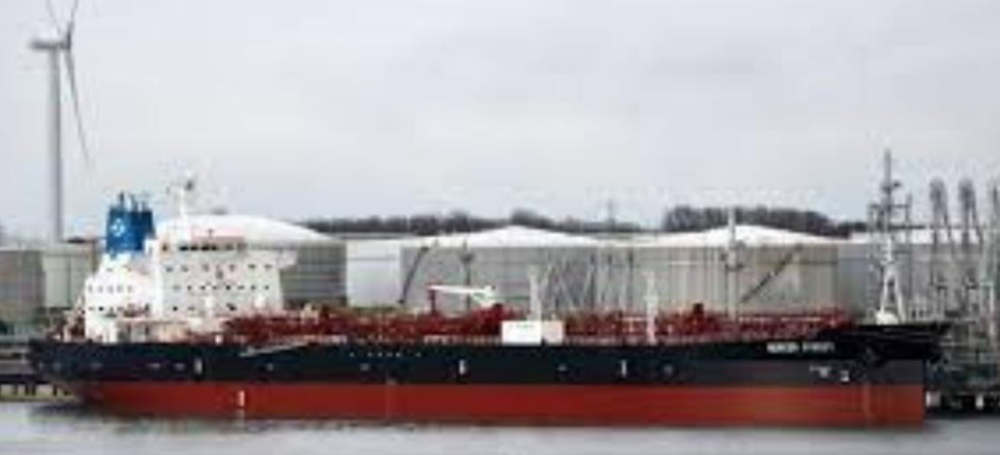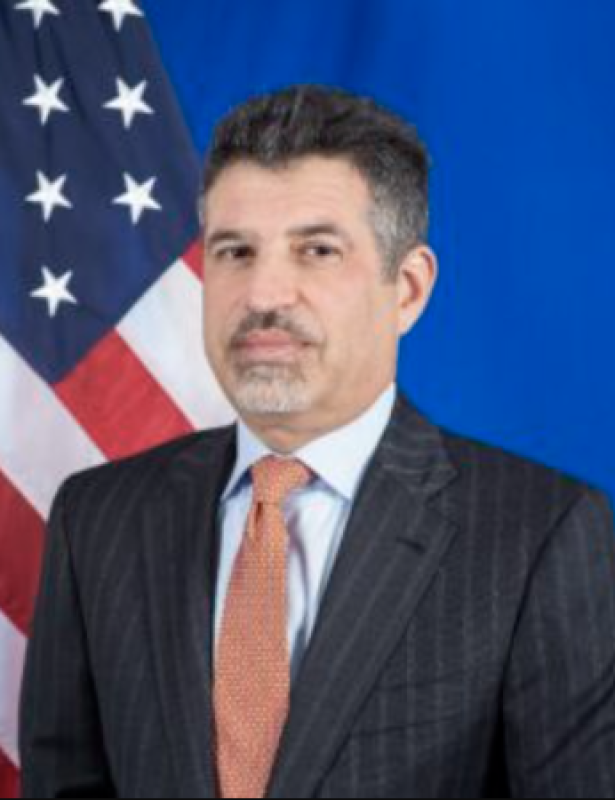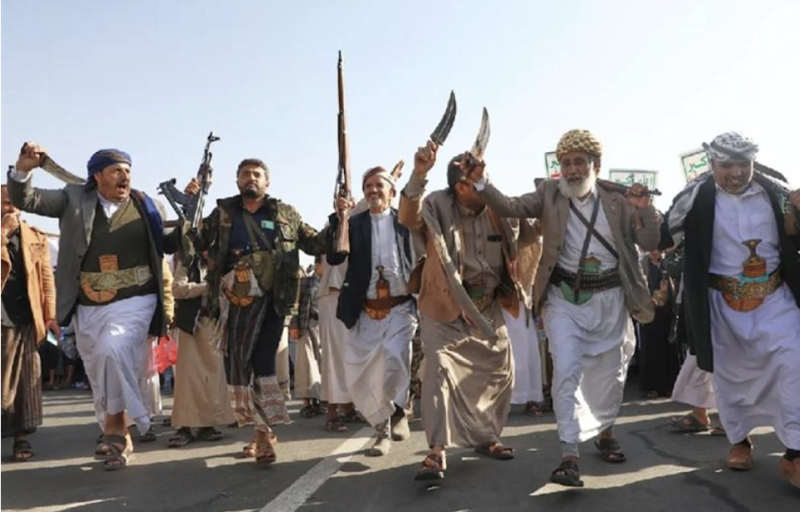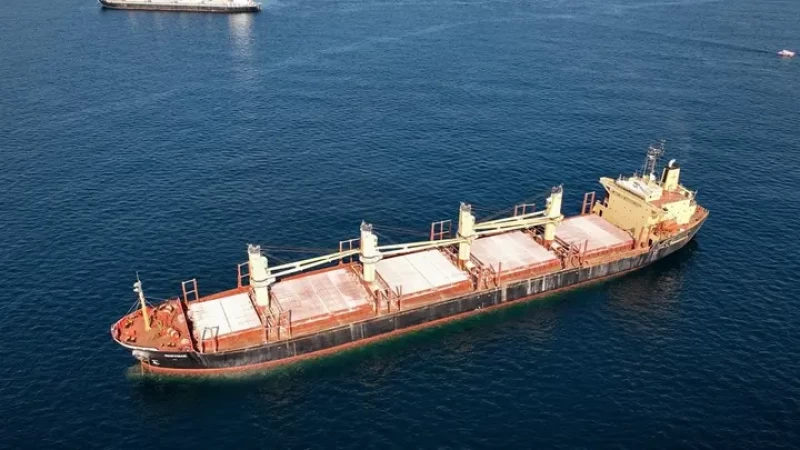Missiles fired from Yemen toward US warship that responded to attack on commercial tanker


Two ballistic missiles were fired from Houthi rebel-controlled Yemen toward a US warship in the Gulf of Aden, after the US Navy responded to a distress call from a commercial tanker that had been seized by armed individuals, the US military said Sunday.
The tanker, identified as the Central Park, had been carrying a cargo of phosphoric acid when its crew called for help that “they were under attack from an unknown entity,” the US Central Command said in a statement.
Pentagon spokesman Brig. Gen. Pat Ryder said Monday that under international maritime norms and laws, when there is a distress signal, “all vessels in the vicinity, are required to come and help and support.” Though Ryder added that there were three Chinese Navy vessels in the vicinity that “did not respond.”
“Supposedly, those ships are there as part of a counter-piracy mission,” he said. “But they did not respond.”
The incident comes after Iran-backed Houthi forces launched numerous attacks against US interests in the region, and Israel, since the October 7 Hamas attacks, as fears continue to ripple across the region that the Israel-Hamas war could widen.
The Houthis are a Shia political and military organization in Yemen that have been fighting a civil war in the country against a coalition backed by Saudi Arabia. They have voiced support for the Palestinians and organized protests in Yemen against Israel’s offensive in Gaza.
Ryder told reporters on Monday that initial indications showed the attackers, who are currently being held on the Mason, are Somali.
The USS Mason, a guided-missile destroyer, and allied ships from a counter-piracy task force that operates in the Gulf of Aden and off the coast of Somalia responded to the call for help and “demanded release of the vessel” upon arrival, Central Command said.
“Subsequently, five armed individuals debarked the ship and attempted to flee via their small boat,” said the statement posted on social media platform X.
“The Mason pursued the attackers resulting in their eventual surrender,” the statement added.
The individuals “attempted to access and take control of the ship, but when the combined task force responded they essentially fled.” Ryder said a Visit, Board, Search and Seizure (VBSS) team from the Mason pursued the attackers and detained them, before going back to the Mason, clearing the ship and making contact with the crew ensuring they were safe.
Less than two hours after the Navy’s VBSS team cleared the Central Park – at 1:41 a.m. local time on Monday – two ballistic missiles were fired from areas controlled by Houthi rebels in Yemen “toward the general location” of the USS Mason and Central Park, the statement said.
“The missiles landed in the Gulf of Aden approximately ten nautical miles from the ships,” the statement said.
The Mason was finishing its response to the Central Park’s distress call at the time of the missile launches. There was no damage or reported injuries from the Central Park or the Mason as a result, it added.
Ryder declined on Monday to say if the missiles were believed to be targeting the Mason and Central Park. He said that while the Mason was tracking the missiles, they did not attempt to shoot them down and they “landed harmlessly in the water.”
A statement from UK-based Zodiac Maritime, which manages the Central Park, said Sunday the Liberian-flagged chemical tanker was safe “and all of the crew, the vessel, and cargo are unharmed.”
The tanker appears to have links to an Israeli-owned company; Zodiac Maritime is listed as a business belonging to Israeli billionaire Eyal Ofer’s Ofer Global, though a spokesperson speaking on behalf of Zodiac Maritime, Janni Jarvinen, said Sunday that Zodiac “is not owned by Ofer Global.”
Gen. Erik Kurilla, commander of US Central Command, said in the statement on Sunday that maritime domain security ‘is essential to regional stability.”
“We will continue to work with allies and partners to ensure the safety and security of international shipping lanes,” Kurilla said.
Since Hamas’ attack on Israel, the US has emphasized the priority of avoiding the conflict from spilling over into a broader conflict in the region, as US forces in Iraq and Syria have also been under regular attack by Iranian-backed groups. Among the groups Tehran supports, the Houthis are of particular concern as they are more independent of Iran than some others.
Despite the escalation of attacks in the region, however, CNN reported previously that intelligence showed Iran and its proxies have been thus far calibrating their responses to avoid direct conflict with US or Israel.
But, over the last several weeks, the US has intercepted a number of cruise missiles and attack drones fired by the Houthis toward Israel or US assets. Last week, the USS Thomas Hudner shot down multiple one-way attack drones launched from Yemen while it was patrolling in the Red Sea. On November 15, the Hudner also shot down a drone believed to have been heading toward the ship. Earlier this month, the Israeli military said it thwarted an aerial attack of ballistic missiles and drones launched against targets in Israel.
Houthi naval forces renewed a warning in a statement last week to ships in the Red Sea flying the Israeli flag, managed by Israeli companies or owned by Israelis.
The group declared its intent to persist in military operations against Israeli ships and interests until Israel’s “aggression against Gaza stops.”
The statement warned any military units providing protection to Israeli ships, stating that they would be considered legitimate targets for Houthi operations.
Ryder said Monday that the Pentagon still assesses that the Israel-Hamas conflict has not yet spread into the region despite the recent attacks.
“We largely see the conflict contained between Israel and Hamas. That’s not to say that you haven’t seen Iranian proxies attempt to take advantage to further their own goals,” Ryder said.
“In the case of Iraq and Syria, you know, we’ve known that these groups for a long time have wanted to see us forces depart. But … no, we do not see that this has become a regional conflict. Although again, tensions are high, and it’s something that we’re taking seriously and attempting to ensure does not happen.”

Riyadh  — U.S. Ambassador to Yemen Steven Fagin has strongly condemned the continued detention of American embassy staff by the Houthi g…

Sana'a -- "Five national staff and fifteen international staff remain detained within the compound," said Jean Alam, spokesman for the UN resident…

Aden – British maritime security firm Ambrey has issued an alert regarding a maritime security incident that occurred off the coast of Ahwar,…